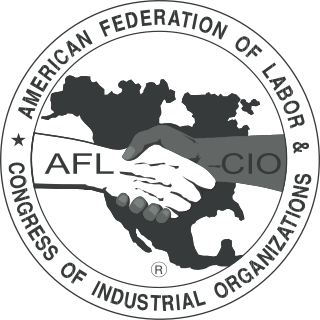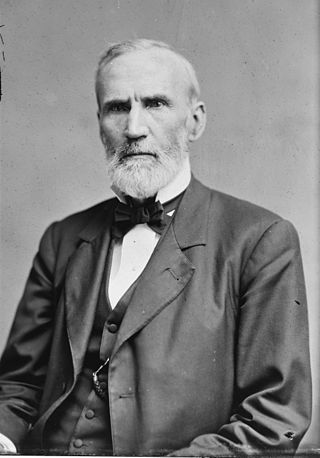Related Research Articles
Agrarianism is a social and political philosophy that has promoted subsistence agriculture, family farming, widespread property ownership, and political decentralization. Adherents of agrarianism tend to value traditional bonds of local community over urban modernity. Agrarian political parties sometimes aim to support the rights and sustainability of small farmers and poor peasants against the wealthy in society.

The Homestead Acts were several laws in the United States by which an applicant could acquire ownership of government land or the public domain, typically called a homestead. In all, more than 160 million acres of public land, or nearly 10 percent of the total area of the United States, was given away free to 1.6 million homesteaders; most of the homesteads were west of the Mississippi River.

Henry George was an American political economist and journalist. His writing was immensely popular in 19th-century America and sparked several reform movements of the Progressive Era. He inspired the economic philosophy known as Georgism, the belief that people should own the value they produce themselves, but that the economic value of land should belong equally to all members of society. George famously argued that a single tax on land values would create a more productive and just society.

The American Federation of Labor and Congress of Industrial Organizations (AFL-CIO) is a national trade union center that is the largest federation of unions in the United States. It is made up of 60 national and international unions, together representing more than 12 million active and retired workers. The AFL-CIO engages in substantial political spending and activism, typically in support of progressive and pro-labor policies.
A reform movement or reformism is a type of social movement that aims to bring a social or also a political system closer to the community's ideal. A reform movement is distinguished from more radical social movements such as revolutionary movements which reject those old ideals, in that the ideas are often grounded in liberalism, although they may be rooted in socialist or religious concepts. Some rely on personal transformation; others rely on small collectives, such as Mahatma Gandhi's spinning wheel and the self-sustaining village economy, as a mode of social change. Reactionary movements, which can arise against any of these, attempt to put things back the way they were before any successes the new reform movement(s) enjoyed, or to prevent any such successes.

The history of the United States from 1865 until 1917 covers the Reconstruction era, the Gilded Age, and the Progressive Era, and includes the rise of industrialization and the resulting surge of immigration in the United States. This article focuses on political, economic, and diplomatic history.
Geolibertarianism is a political and economic ideology that integrates libertarianism with Georgism. It favors a taxation system based on income derived from land and natural resources instead of on labor, coupled with a minimalist model of government, as in libertarianism. The term was coined by the late economist Fred Foldvary in 1981.
The Radicals were a loose parliamentary political grouping in Great Britain and Ireland in the early to mid-19th century who drew on earlier ideas of radicalism and helped to transform the Whigs into the Liberal Party.

The Progressive Era (1896–1917) was a period of widespread social activism and political reform across the United States focused on defeating corruption, monopoly, waste, and inefficiency. The main themes ended during American involvement in World War I (1917–1918) while the waste and efficiency elements continued into the 1920s. Progressives sought to address the problems caused by rapid industrialization, urbanization, immigration, and political corruption; and by the enormous concentration of industrial ownership in monopolies. They were alarmed by the spread of slums, poverty, and the exploitation of labor. Multiple overlapping progressive movements fought perceived social, political and economic ills by advancing democracy, scientific methods, professionalism and efficiency; regulating businesses, protecting the natural environment, and improving working conditions in factories and living conditions of the urban poor. Spreading the message of reform through mass-circulation newspapers and magazines by "probing the dark corners of American life" were investigative journalists known as "muckrakers". The main advocates of progressivism were often middle-class social reformers.
George Henry Evans was a radical reformer who was in the Working Men's movement of 1829 and the trade union movements of the 1830s. Evans was born in Bromyard, Herefordshire, England, the son of George Evans and Sarah White, and had a younger brother, Frederick William Evans, who became a Shaker and served as an elder in the Mount Lebanon Shaker Society.

George Washington Julian was a politician, lawyer, and writer from Indiana who served in the United States House of Representatives during the 19th century. A leading opponent of slavery, Julian was the Free Soil Party's candidate for vice president in the 1852 election and was a prominent Radical Republican during the American Civil War and the Reconstruction era.

The Working Men's Party in New York was a political party founded in April 1829 in New York City. After a promising debut in the fall election of 1829, in which one of the party's candidates was elected to the New York State Assembly, the party rapidly disintegrated into factionalism and discord, vanishing from the scene in 1831.

The New Deal was a series of programs, public work projects, financial reforms, and regulations enacted by President Franklin D. Roosevelt in the United States between 1933 and 1938. Major federal programs and agencies, including the Civilian Conservation Corps (CCC), the Works Progress Administration (WPA), the Civil Works Administration (CWA), the Farm Security Administration (FSA), the National Industrial Recovery Act of 1933 (NIRA) and the Social Security Administration (SSA), provided support for farmers, the unemployed, youth, and the elderly. The New Deal included new constraints and safeguards on the banking industry and efforts to re-inflate the economy after prices had fallen sharply. New Deal programs included both laws passed by Congress as well as presidential executive orders during the first term of the presidency of Franklin D. Roosevelt.
Labor Party was the name or partial name of a number of United States political parties which were organized during the 1870s and 1880s.

The National Industrial Recovery Act of 1933 (NIRA) was a US labor law and consumer law passed by the 73rd US Congress to authorize the president to regulate industry for fair wages and prices that would stimulate economic recovery. It also established a national public works program known as the Public Works Administration (PWA). The National Recovery Administration (NRA) portion was widely hailed in 1933, but by 1934 business opinion of the act had soured.

The Young America Movement was an American political, cultural and literary movement in the mid-19th century. Inspired by European reform movements of the 1830s, the American group was formed as a political organization in 1845 by Edwin de Leon and George Henry Evans. It advocated free trade, social reform, expansion westward and southward into the territories, and support for republican, anti-aristocratic movements abroad. The movement also inspired a drive for self-consciously "American" literature in writers such as Nathaniel Hawthorne, Herman Melville, and Walt Whitman. It became a faction in the Democratic Party in the 1850s. Senator Stephen A. Douglas promoted its nationalistic program in an unsuccessful effort to compromise sectional differences. The breakup of the movement left many of its adherents discouraged and disillusioned.
Labor Zionism or socialist Zionism refers to the left-wing, socialist variation of Zionism. For many years, it was the most significant tendency among Zionists and Zionist organizations, and was seen as the Zionist sector of the historic Jewish labour movements of Eastern Europe and Central Europe, eventually developing local units in most countries with sizable Jewish populations. Unlike the "political Zionist" tendency founded by Theodor Herzl and advocated by Chaim Weizmann, Labor Zionists did not believe that a Jewish state would be created by simply appealing to the international community or to powerful nations such as the United Kingdom, Germany, or the former Ottoman Empire. Rather, they believed that a Jewish state could only be created through the efforts of the Jewish working class making aliyah to the Land of Israel and raising a country through the creation of a Labor Jewish society with rural kibbutzim and moshavim, and an urban Jewish Proletariat.
Workplace democracy is the application of democracy in various forms to the workplace, such as voting systems, debates, democratic structuring, due process, adversarial process, and systems of appeal. It can be implemented in a variety of ways, depending on the size, culture, and other variables of an organization.

Frederick William Evans was a Shaker writer who served as an elder in the Mount Lebanon Shaker Society for many years. Evans was the younger brother of the land reformer George Henry Evans.

The first term of the presidency of Franklin D. Roosevelt began on March 4, 1933, when he was inaugurated as the 32nd president of the United States, and the second term of his presidency ended on January 20, 1941, with his inauguration to a third term. Roosevelt, the Democratic governor of the largest state, New York, took office after defeating incumbent President Herbert Hoover, his Republican opponent in the 1932 presidential election. Roosevelt led the implementation of the New Deal, a series of programs designed to provide relief, recovery, and reform to Americans and the American economy during the Great Depression. He also presided over a realignment that made his New Deal Coalition of labor unions, big city machines, white ethnics, African Americans, and rural white Southerners dominant in national politics until the 1960s and defined modern American liberalism.
References
- ↑ Fure-Slocum, Eric (1995-01-01). "Urban Poverty and "The Right to Cultivate the Earth": American Land Reformers in the 1840s". Iowa Journal of Cultural Studies. 1995 (14): 120–132. doi: 10.17077/2168-569X.1211 .
- ↑ McCarthy, Timothy Patrick; McMillian, John Campbell (2011-05-10). The Radical Reader: A Documentary History of the American Radical Tradition. The New Press. ISBN 978-1-59558-742-8.
- ↑ Murray, John E. (1996). "Henry George and the Shakers: Evolution of Communal Attitudes Towards Land Ownership". The American Journal of Economics and Sociology. 55 (2): 245–256. doi: 10.1111/j.1536-7150.1996.tb03205.x . ISSN 0002-9246. JSTOR 3487086.